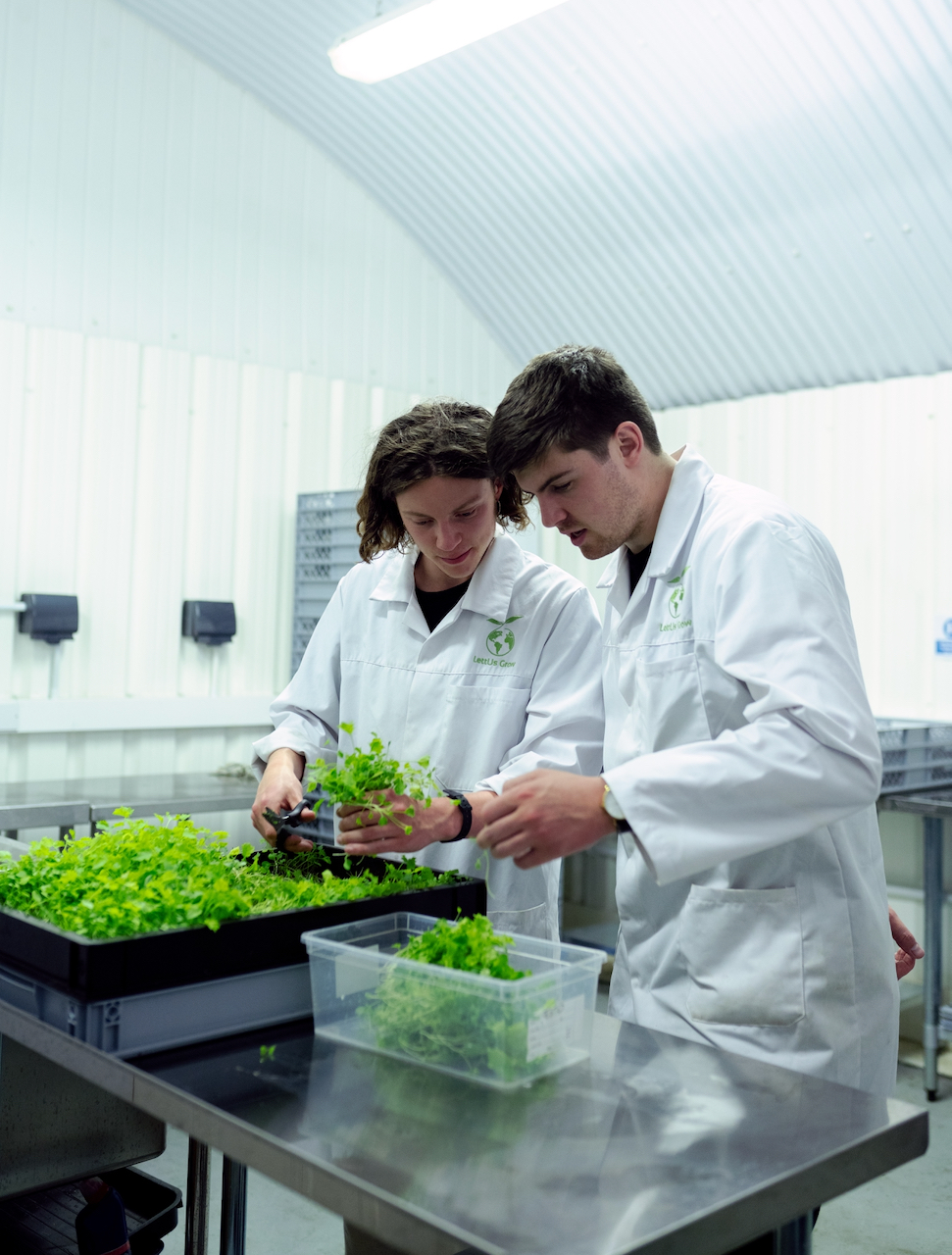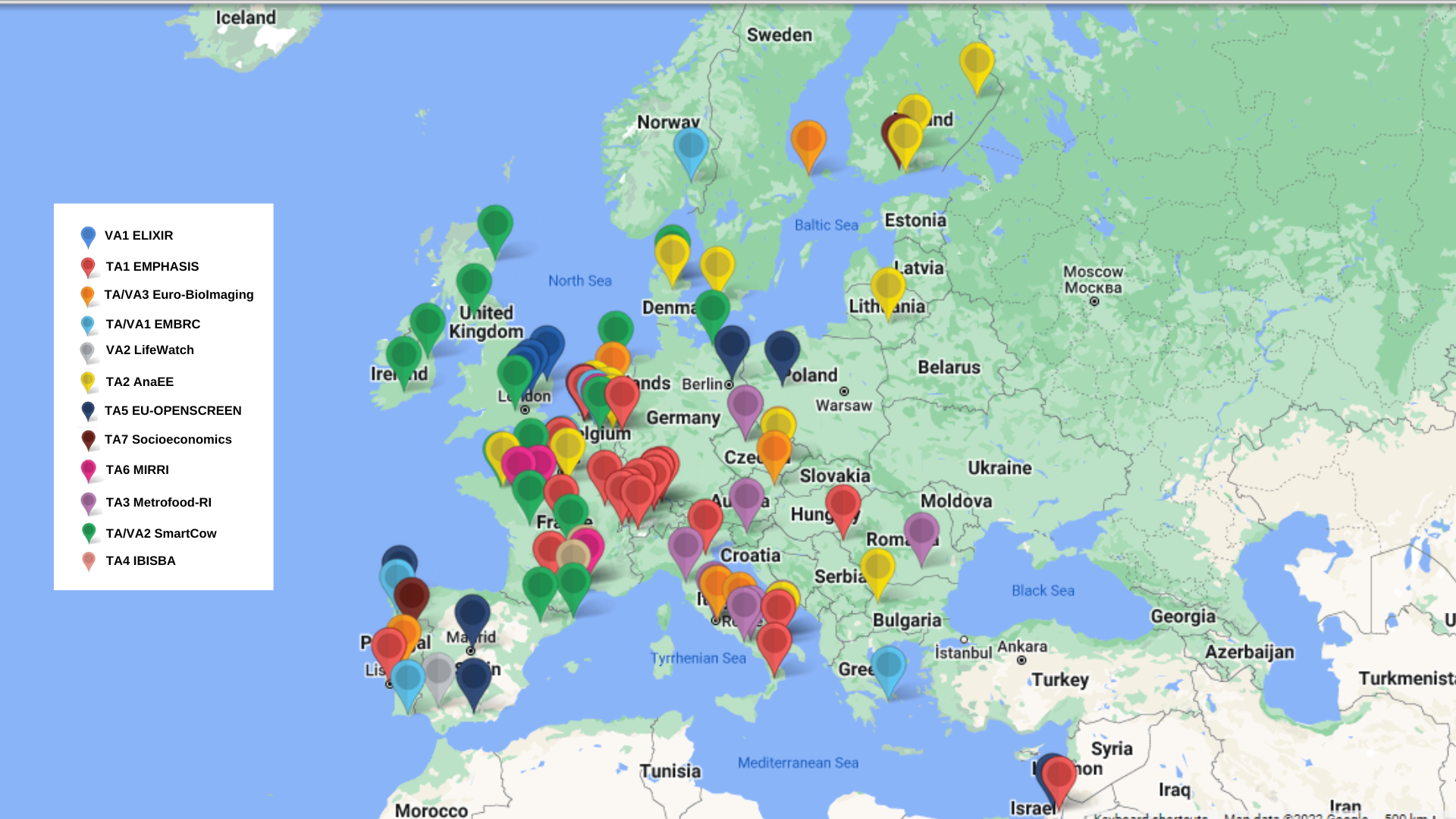
Creating the future of agriculture
AgroServ is a five-year long EU-funded project, (2022-27), with a mission to support research and innovation in the field of agriculture and agroecology. We aim to address the complex challenges faced by agricultural systems, including the need to sustainably feed a growing global population, combat climate change, preserve natural resources, and enhance biodiversity.
To do that we offer a wide range of research services, from the molecular to the societal level, and create new links and collaboration between different stakeholders within the sector, such as farmers, the industry and policymakers.
The unique contribution of AgroServ comes from the high inclusiveness of research infrastructures, within the agroecological sector. A total of 73 partners comes together, offering a total of 143 Research Services. This wide offer of services is easily accessible through a common portal.
The results and methods will be useful for many, including politicians and other policy makers to evaluate the right approach to environmental threats when making evidence-based decisions.
The transdisciplinary project AgroServ is funded by the European Union under the Horizon Europe programme. It encourages the cross-fertilisation of knowledge in a variety of fields such as agricultural sciences, natural sciences, biological sciences, ecology, forestry, fisheries and agronomy.

By delivering a Europe-wide data ecosystem, AgroServ aims to facilitate a systemic and holistic approach to understand the challenges facing agriculture and to develop resilient and sustainable agrifood systems. By looking at ecological processes applied to farming and related to agroecosystem biodiversity, the project will be concerned with enabling research related, among others, to:
** Agricultural production practices,
** Material cycling and the efficiency and use of natural resources,
** Species interactions and plant and animal breeding (following a “one health” approach),
** Investigative domains of cognitive and organisational nature (stresses on agricultural systems from drivers outside agriculture…),
** Climate change adaptation and mitigation, carbon sequestration, soil health, pest and disease control, etc.
Thanks to its unique offer of research services, the project will bring together all actors of the agriculture system (the agricultural community, the scientific community, multi-disciplinary and multi-actor initiatives, policymakers, and the general public). In this respect, AgroServ aims to:
- Achieve a better alignment of approaches through several types of expertise, disciplines, and technologies, and by integrating competences from chemists, biologists, agronomists, ecologists, bioengineers, analysts, social scientists, and economists.
- Consolidate its network of living labs (LLs) across Europe through fostering a co-creation approach and adopting an innovative mindset to overcome traditional models of knowledge transfer and to champion and accelerate the adoption of new innovative methods related to food production systems.
- Advance our knowledge on agronomic and husbandry practices, with a focus on the threats and risks on agroecosystems.
- Support the development of new agroecological practices by fostering transdisciplinarity and by integrating a socio-economic dimension to it.
73 Partners
143 Research Services
11 European Research Infrastructures (RIs)